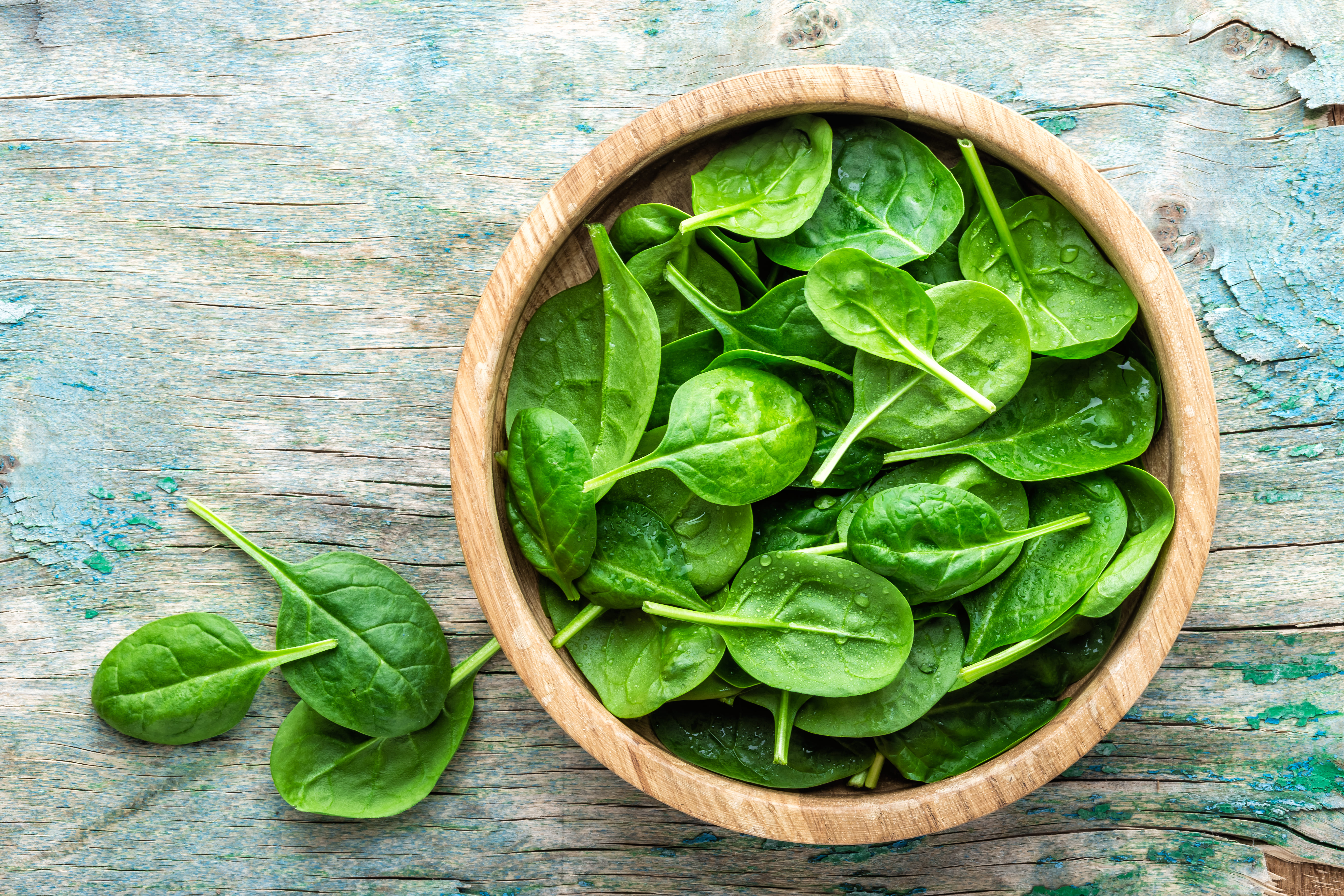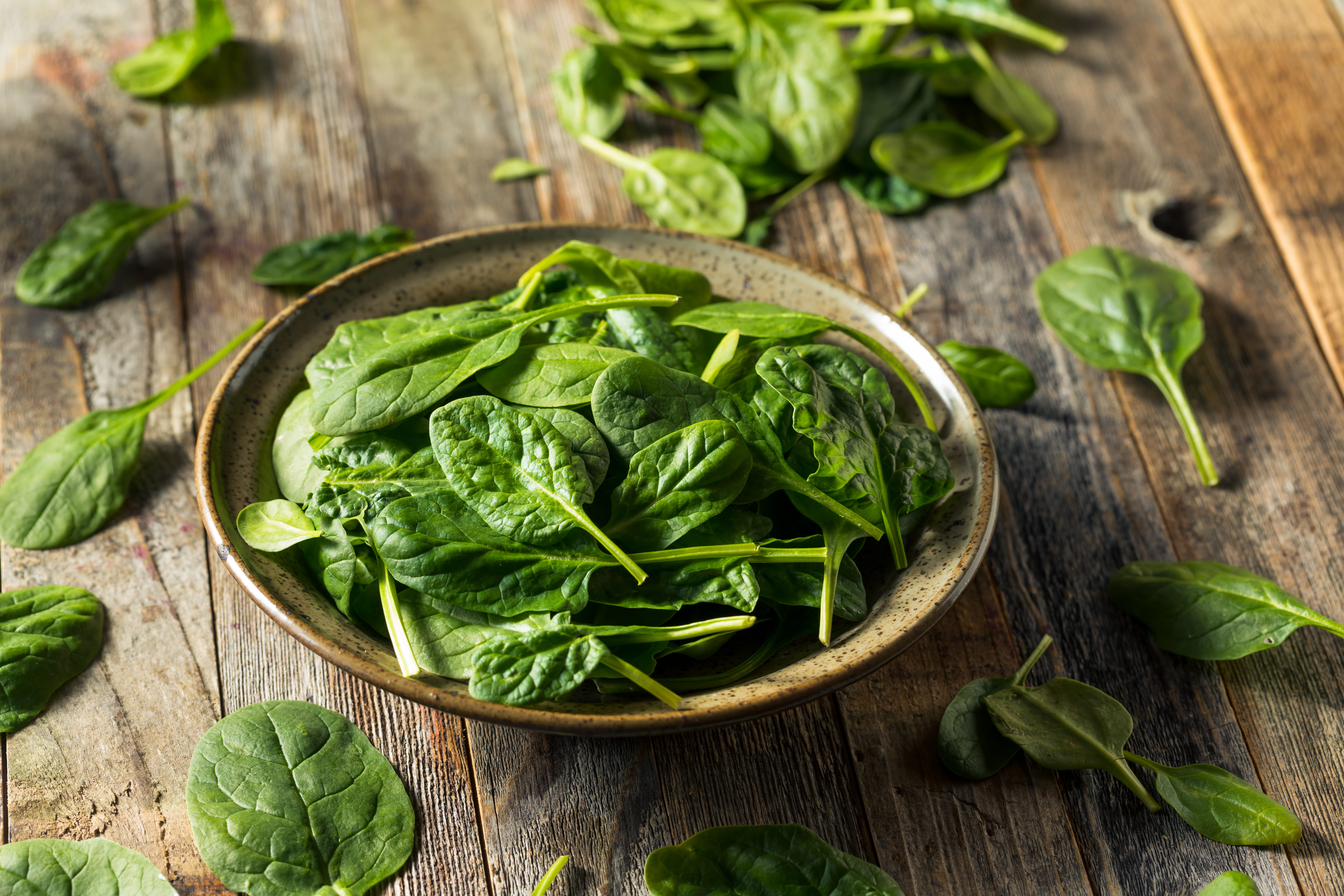
Why Some People Should Avoid Eating Spinach
I may be giving away my age, but when I grew up, Popeye was a popular cartoon hero, and he ate spinach to get strong muscles. We were always urged to “eat your spinach, and be like Popeye”.
Unfortunately, the spinach that was primarily available back then was the nasty, cooked to death kind that came in a can. It wasn’t until my family started growing spinach in our own garden that I learned to love it’s tender, sweet, fresh-picked leaves in a salad or lightly stir fried with lemon and butter. It’s tender texture and mild taste make it a favorite addition to smoothies, soups, and stir-fries. According to the USDA, Americans consume nearly 2½ pounds of spinach per year per capita these days.
Spinach is a nutrient-dense, dark green leafy vegetable, high in niacin, and other B vitamins, vitamins A, C, E, K, packed with calcium, iron, magnesium, phosphorus, potassium, copper, and manganese. Spinach also contains some serious antioxidants that fight free radicals that damage the cells in your body, helping prevent cancer, chronic diseases, aging and other serious health issues. The folate it contains, an essential B vitamin, is especially vital for pregnant women and their fetuses, and also protects your cardiovascular system, paired with magnesium that helps essentially every bodily function, as well as maintaining a healthy blood pressure level. Spinach is also excellent brain food, improving memory and mental clarity.
Spinach comes from the same family as beets and swiss chard. These superfoods are known for reducing inflammation and slowing the aging process, so it’s no wonder spinach seems to be such a superstar!
Spinach’s high antioxidant content, which includes beta-carotene, lutein, and zeaxanthin, help fight cancer, heart disease, diabetes, and obesity. Spinach protects immunity by lowering inflammatory responses, reducing cell damage, and aiding in digestive health too.
Also worth noting, spinach contains a type of healthy natural steroid that increases sugar/glucose metabolism and helps maintain healthy blood sugar levels. Obviously this is especially beneficial with people with pre-diabetes or diabetes, since it helps to eliminate the need for insulin.
So yes, spinach does have some very amazing health benefits, but it can also have a few downsides too.
Although spinach contains high levels of iron and calcium, these nutrients are somewhat difficult to absorb from spinach. And even though there is lots of calcium, it is virtually unusable in our bodies, as spinach contains one of the least bioavailable forms of calcium.

This is partly because spinach contains substances that inhibit certain nutrients from being properly absorbed. Spinach also contains a substance called oxalic acid or oxalates which can bind to calcium and iron in the body and prevent the body from being able to absorb them. Oxalic acid is a natural substance found in several different plant based foods including rhubarb (its leaves contain very high amounts of oxalic acid), chard, and beet greens.
Oxalic acid does bind to some minerals, making them unavailable for the body to absorb. So if you were to eat large quantities of foods containing lots of oxalic acid on a daily basis, you may end up with some nutritional deficiencies over a period of time—but we are talking weeks to months, though, not just a meal or two.
For some people, the high oxalate levels in spinach can also create an increased risk of kidney stones and joint problems.
Oxalates can accumulate in the body, especially the kidneys. When the oxalates combine with calcium, kidney stones can form. Calcium oxalate is responsible for about 80% of kidney stones as a matter of fact. And this is where spinach gets its bad rap.
Oxalates are not recommended for people who have inflammatory diseases including gout, arthritis, and even vulvodynia. These people have a tendency to have a greater uptake of oxalates and calcium. But for most of us, this should not be a problem, as long as you’re not eating spinach every single day.
Cooking spinach was thought to lower the oxalate content, but research shows this does very little to reduce oxalates.
Generally, unhealthy levels of oxalate buildup is an uncommon problem with spinach and other high oxalate foods, so there really is no reason to avoid spinach unless your doctor advises you to, or you have Gout or Arthritis as mentioned above.
Overall, spinach can be a healthy addition to most people’s diets, but just beware not to overdo the quantity so that you’re not getting excessive oxalates on a daily basis. So go ahead and throw a handful in your smoothies, munch down on a healthy spinach salad for lunch, and maybe even try a creamed spinach with dinner. But for a lot of people, eating spinach a couple times a week might be better than on a daily basis.
Now, before you go…
If you’re experiencing fatigue, unexpected weight-gain, or any symptoms of a sluggish thyroid… we have an urgent warning for you:
Greek VS Taco VS Caesar… (#1 Worst Salad For A Slow Thyroid)
If you have a lazy thyroid… STOP eating salads.
According to America’s #1 thyroid-specialist, there’s one “toxic salad” that wrecks your T3 & T4 hormones…
And can be DEADLY for your thyroid health.
But the worst part? There’s a 91% chance you’re eating it at least 1x a week.
Try to guess which one it is:

Tap on your guess or get the correct answer below:
>> #1 WORST salad for your thyroid (it WRECKS your T3 & T4 hormones).
References :
Axe, Dr. Josh. Spinach Nutrition, Health Benefits and Recipes. Retrieved from https://draxe.com/spinach-nutrition/
Abratt VR and Reid SJ. Oxalate-degrading bacteria of the human gut as probiotics in the management of kidney stone disease. Adv Appl Microbiol. 2010;72:63-87. doi: 10.1016/S0065-2164(10)72003-7.
Mercola, Joseph. What is spinach good for? Retrieved from http://foodfacts.mercola.com/spinach.html
Worlds Healthiest Foods. Spinach. Retrieved from http://www.whfoods.com/genpage.php?tname=foodspice&dbid=43
Popular Articles
-
The Dangers of Green Smoothies (Can contain toxic levels of certain compounds)
-
Rosemary: Benefits for brain health, pain, cancer, inflammation, and more
Exclusive FREE Books!



